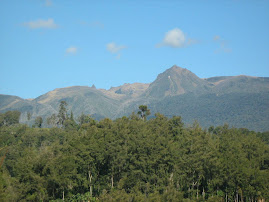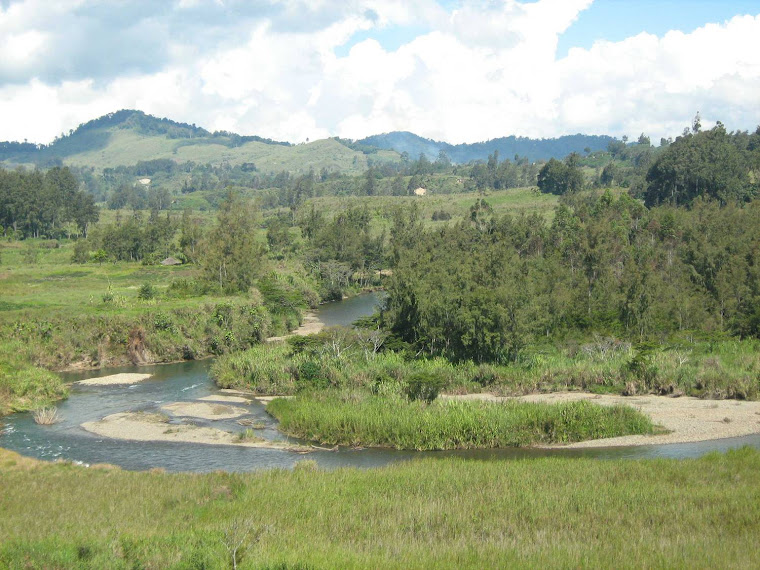 Team PNG in Beijing 2008
Team PNG in Beijing 2008 Colorful team PNG in Beijing 2008
Colorful team PNG in Beijing 2008 Albert Tobby, PNG student in Beijing with Olympic delegation 2008.
Albert Tobby, PNG student in Beijing with Olympic delegation 2008.I Believe in Papua New Guinea
By Mathew Yakai in Changchun, China
IF people out there say that this country has struggled in its democratization, political stability, economic revamps and societal break down then they have denied their impartial observation.
If people out there say that this country has headed to the brink of economic, political and moral collapse then they have jealously admired the progress in the past 33 years.
If people out there say that this country, a “black nation” in the Pacific Ocean would not stand on its own feet by comparing to the African nations then they have denied the facts of human and ideological indifferences.
“I Believe in Papua New Guinea”, so as you do because we have proven to the world that, “there came a country and the country is Papua New Guinea”.
“I Believe in Papua New Guinea” because after 33 years of political independence, we have shown to the world that in diversity, we live humbly in brotherhood.
Yes, we do have differences, whether it’s ethnic issues, regionalism, and others that are related to the concept of “we” and “them”, an attempt to classify people given their difference.
But if there is one thing that PNG has achieved in the past 33 years, I would not go further then “diversity in one”.
Many countries in the world today enjoy homogenous society. That settles a common ideological foundation, identity, language and they work together for common benefits…and yes, we have seen them succeeding.
In PNG, the country that boats more then 860 languages can spell over thousand tribes whom not long ago stepped out from “stone age” to “technological age”.
And in this, our fathers of this great nation had the wisdom to draw the Constitution to bind us together as one nation, one country and one people, yet in diversity.
If we as a country have proven to those out there wishing that we should collapse as a nation of collective people then we have proven that we stood, now standing, and will stand from next year on.
PNG has proven to the world that this country of thousand tribes and languages from the mountains of Huli to Marawaka, all the way down to the isolated islands of Milne Bay that we are one.
We have told the world, “PNG can manage diversity, the population comprises of different ideological reasoning’s”.
In both theory and practice, it is indeed difficult to manage this. But we did and we are capable.
In the Western countries, they do not have the experience to manage diversity.
In Asia Pacific, the countries do have the same experience as PNG given their own settings.
Diversity of Asia Pacific was well managed in an attempt to rescue the then economically affected countries during the 1997 to 1998 Asian Financial Crises.
So, what does this tell us? As a country, we have impressively overcome one of the major debacles in the country’s development, which is ideological diversity.
We manage to accept the fact that we are one nation.
The Bougainville crisis was not the result of ethnic differences but the fault of the then Sir Julius Chan’s government to listen to the people’s voice.
In other words, the government at that time failed to listen to the people’s cry when it is obligated to.
This taught us one lesson. “The government for the people must listen to the people to uphold diversity, and avoid it from being fragmented.”
The Huli’s in Southern Highlands Province and Jiwaka’s in Western Highlands are vying for separate provinces claiming that they meet the requirement, including population.
This is done not because certain individuals want to be influential in their likely provinces but the fact draws back to the lack of goods and services provided by their respective provincial administrations.
This tells us that, “the government of the day must provide basic goods and services, and I emphasize that they must be tangible so that people see and feel that there is a government caring for them”.
Otherwise, the Jiwaka and Huli provinces will set a precedent where the diversity we are managing will be fragmented.
Of course, many of us do not want to see the Papuans different from the Highlanders, and the Tolai’s different from Sepik’s. We are indeed one proud country!
This scribe remembers a speech by the late Bill Skate at the University of Papua New Guinea in 1998. The late leader encouraged and promoted intermarriage between the highlanders and islanders, Momase and New Guinea Island region to discourage ethnic problems.
Again, this scribe believes that the problem is not ethnic diversity but the failure by the day’s government to provide what is due for the people.
When people are happy, and have their salaries increased and paid on time, the public servants are accommodated in good houses and well looked after to boost their morale, the unemployed are engaged in agriculture sectors, the road system are improved, hospitals and schools are well funded, our sisters and mothers safety are guaranteed then the Jiwaka’s and Huli’s will not even think of having their own provinces.
This scribe even believes that Bougainville may not ask for full independence after conducting their referendum if Waigani can prove its leadership now.
PNG can adopt the concept used by China with Hong Kong and Macau to Bougainville. But there must be some visionary leadership today.
China with a population of 1.3 billion people and the largest land mass with around 56 different ethnic groups manages to hold together the country through a tremendous economic progress since 1978.
What is impressive to this scribe is that millions of Chinese have been pulled out from poverty, reasonable accommodations are provided with low cost, agriculture sector is funded and encouraged by the Central Government, hospitals, schools, railways, roads, communications and important infrastructures are provided.
This scribe has never seen any families in China going without a meal in a day. Visits to families and friends have impressed me that they have household goods one would find in any modern society.
Comparing to my country I love, we are still lacking behind in many things.
But “I Believe in Papua New Guinea” that we have come a short way but the long way ahead will be prosperous if our leaders have the vision and wisdom.
When I hear of corruption, mothers being raped, public servants underpaid and living in settlements, robbery is the game of the day, prostitution has been used to earn easy money, hospitals and schools have broken down, highlands highway has been jeopardized, innocent people are murdered and many other issues, I ask my self, “way all these in a great country of ours?”
My heart pains because I do not want to see the children of today and tomorrow wake up from their bed with terror, hunger, spiritual and moral breakdown.
When other countries enjoy the essence of humanity, we are still struggling to survive, not as a country but as individuals. The pride of being Papua New Guinean and serving our country is absent, a sad moment.
This scribe urges all its readers to put down the differences, hold up your heads, walk shoulder to shoulder as a country from next year 2009 onwards.
We have been down in the deepest valley and know how tough and bad it is. Now we must move on and one day we will reach that higher hill and realize the importance of how wonderful to be in the highest valley.
Merry Christmas and a prosperous Happy New Year 2009. This scribe would ask no more then a dedication for this country that “I Believe in and Love”, and you do to.











No comments:
Post a Comment